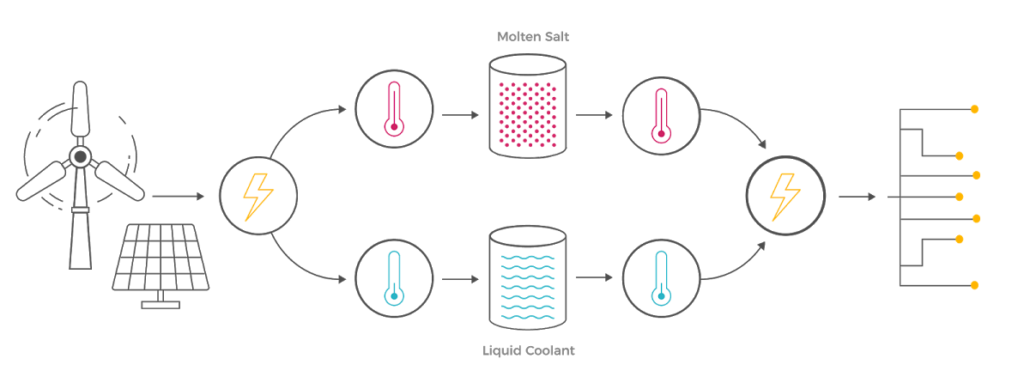Malta project: storing energy with molten salt reaches a new level

Solar thermal power plants use molten salt as a coolant. The system works relatively simply: the focused sun rays are directed by mirrors to the tower with salt, the salt melts under the influence of temperature, transfers heat. It is used to turn water into superheated steam, which rotates turbines that generate electricity.
As it turned out, with the help of molten salt, energy can be not only generated, but also stored. This is what a start-up Malta is engaged in, which was previously part of Alphabet Corporation’s X division. And this startup, having left Alphabet, has already managed to get $ 26 million from the group of investors Breakthrough Energy Ventures . The group members are Jeff Bezos, Bill Gates, Michael Bloomberg.
Why save energy, and even in such a strange way? The fact is that more and more green energy is produced every year, and surpluses are often formed, which have nowhere to store. In China, in 2017, 17% of the energy generated by wind turbines was lost. Lithium battery systems are still too expensive, so everyone cannot use them. Startup Malta claims that energy can be stored in a more economical way.
The principle of operation of the Malta system was describedback in 2017. At the heart of everything is molten salt, heated to a high temperature and inexpensive cooled antifreeze. First, using a heat pump, electricity is converted into heat, storing it in the molten salt. Further, when electricity is needed again (for example, at night or on a windless day), molten salt is combined with cold antifreeze, and the heat pump converts heat into electricity. You can keep warm for weeks.

Now the company decided to start working with a view to profit, that is, to become a commercial organization, and not a popular science division of Google.
The advantage of Malta is that its systems can be placed anywhere (of course, we mean the region where there is a need for energy storage). In addition, such a system is not very expensive, so the deployment of infrastructure of this kind will not afford to pay taxpayers or any company that has decided to use the services of Malta. The service life of the system is 20-40 years. Unlike the same lithium batteries, molten salt will not “lose capacity” and will not deteriorate. There is no release of toxic substances.
It is worth noting that Malta is based on the development of Nobel Prize in Physics Robert Laughlin . In April of this year, the company published a patent for its development.
The pilot project will be implemented in China, whose government has expressed willingness to support the project. The massive system cannot be created right away, the authors have deployed a relatively small infrastructure, which, however, is easy to scale.


